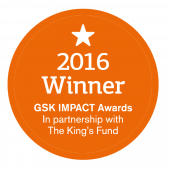This week is mental health awareness week, an opportunity to discuss how mental health affects our lives, and to help remove the stigma of living with a mental health issue. Recently our CEO Monty Moncrieff gave a talk to Let’s Talk About Gay Sex and Drugs, a regular event in London organized by LGBT activists to engage our communities in discussion about our health and wellbeing. This is a transcript of his talk, highlighting our experiences of LGBT mental health, in particular in relation to chemsex.
Let’s Talk About Chemsex
As an LGBT charity when describing the work we do – and most importantly why we have to do it – we have to be able to provide evidence of inequality. I’m not going to just talk tonight about the statistics on mental health within LGBT populations though. We have plenty of evidence that shows us our communities experience poorer mental health than society as a whole. We’re more likely to experience depression, anxiety, stress and other common mental health issues than straight and cisgender people. When we add drugs and alcohol into the mix it can become even more complicated.
I’m the Chief Exec of London Friend. We’re a charity that’s been working to help LGBT people experience better health and wellbeing for over 40 years. We run one of the biggest LGBT specific counselling services in the UK and we have a huge demand for that service. When I talk to people who ring up to refer themselves in there’s a few issues that keep coming up time and time again, and we can probably group most of our referrals as people seeking support around their identity as LGBT people.
For some of them that might be support about coming out. It might be the first time they’re exploring their identities, and they want to come along and talk things through. What does it mean to be gay, bisexual or trans? How do I ‘be’ LGB or T? What will life be like for me?
We don’t just work with people who are starting to inhabit their LGBT identities though: a lot of people come to us because something more stressful is going on in their lives even once they’re out: their families aren’t supportive, or they’re having trouble at work from someone harassing them. Maybe they've been brought up in religious or socially conservative households and they've always struggled to be who they are. Sometimes people have experienced abuse, or been the victim of a hate crime. Sometimes it's the cumulative effect of having been told we're second class for years, only recently having won full legal protections and the right to form the same legal relationships as mixed sex couples - if we want to.
What’s still common though is how this relates to how they feel about their LGB or T identity. Or perhaps more accurately how they’re made to feel about it through the attitudes and actions of other people. So often the golden thread running through all of our work is that we've been brought up to question our rights to be LGBT people, and this for me is probably the biggest reason why we have disproportionate levels of mental health problems within our communities.
But we’re here to think specifically about how this relates to gay sex and drug use.
Our Antidote project is a treatment service providing support when drug use has got out of hand. People generally come in because they're experiencing some kind of crisis: their health is deteriorating; they've been newly diagnosed HIV positive; their job is at risk, or they've lost it; their relationship is suffering; or sometimes they've been arrested.
Whatever that trigger is, when we start to peel back the layers we've always seen that same link with identity and self-worth when people come in to seek support. It's not really possible for us to separate out problematic use from poor mental health because the two sit so snugly alongside one another. Which of course isn't to say that everyone who uses will have poor mental health, or that drugs will cause it. But there does definitely appear to be a link between drugs becoming a problem and people struggling with their identity and esteem.
One thing that is noticeable is that a lot of guys tell us that what they really want is more emotional intimacy in their sexual relationships. When people come in looking for help they're often fed up with not just dealing with the physical and emotional come downs but also with only ever finding casual sex when they'd ideally like it to be more emotionally connected. It does feel sometimes that people are going for what they can get, because what they actually want doesn't feel like it's on offer.
Since we started seeing people coming for support around what we would now call chemsex the link with mental health has been even more noticeable. We're now more likely to see people experiencing paranoia, delusions, drug induced psychosis. We're more likely to see people needing a psychiatric assessment. There's a still small but noticeable increase in people who are being detained under the mental health act. For me this is linked to the switch in drugs to stronger stimulants like crystal meth and less researched drugs with much harsher come downs like mephedrone. We often get calls to our helpline on a Monday or Tuesday with people experiencing horrendous comedowns and essentially asking to be talked through it. And once they've started to feel ok again they're often dealing with other negative mental health feelings like shame, guilt or embarrassment at what they might have been doing when they were high.
Despite the difficulties we see with drugs and mental health we're not in the business of demonising them. To do so only risks demonising people who use drugs and adds to the stigma they might already feel of being gay, being HIV positive, or feeling they're not worthy. It's not the drugs, alcohol or apps themselves, but how confident we feel about ourselves using them in a healthy way.
What we would like to see is people feeling they have more choice about whether they use or don't, and having more ability to control their weekends, their sex, and their emotional health. We'd much rather there wasn't a need for a service like ours. But, given there is, we really want to make it easier for people to feel they can ask for help and they don't have to try to deal with it on their own. We hear so often the bravado of "oh I'll be alright", or "I can handle my drugs" and feeling that this is what you should be like can stop you asking for help when you need it.
Monty
Antidote provides support for LGBT people using drugs and alcohol. You can self-refer through one of our walk-in clinics or outreach in GUM clinics.
You can support our work by making a regular or one-off donation here, or donate by text. To donate £10 text LDNF15 £10 to 70070. To donate a different amount just change the figure, e.g. £5, £25.




